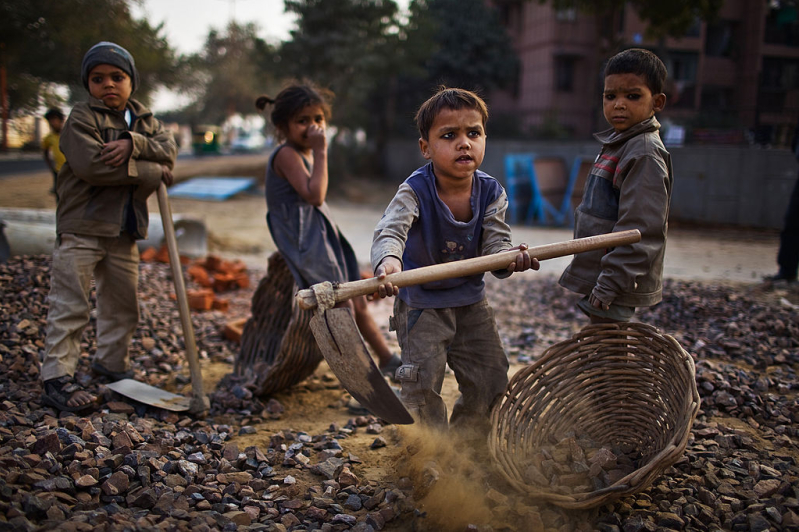
The World Evangelical Alliance and the Salvation Army urged governments to “act with urgency” to end child labor after a United Nations expert warned that 138 million children worldwide remain trapped in exploitation, including 54 million in hazardous work.
The two faith-based organizations delivered a joint statement to the U.N. Human Rights Council, backing a report by Special Rapporteur Tomoya Obokata that detailed widespread child labor, sexual exploitation, and forced recruitment into armed conflicts. They said governments must move quickly to protect children, ensure access to education, and confront systemic poverty that fuels exploitation.
Tomoya Obokata, U.N. Special Rapporteur on contemporary forms of slavery, published a recent report in July, for the September U.N. Human Rights Council session, about the “worst forms of child labour.”
Obokata reported to the U.N. Human Rights Council that an estimated 138 million children remain subjected to child labour worldwide, with “54 million in hazardous forms.”
“States must intensify their efforts to prevent child labour, particularly its worst forms,” wrote Obokata in his report. “Ensuring universal access to education and vocational training is an essential first step in this regard.”
States should also provide economic, social and other support to parents and families so that they can access “just and favourable conditions of work and maintain an adequate standard of living, thereby reducing the need for their children to work,” wrote the Special Rapporteur.
“Sensitizing the general public by applying a holistic and community-based approach is equally crucial, in order to tackle social or cultural norms which in some contexts may promote or condone child labour,” he added.
In response, Markus Hofer, UN communications and advocacy officer for the WEA, on behalf of both the WEA and the Salvation Army, welcomed the Special Rapporteur’s report and fully supported its urgent call to end the worst forms of child labour, at the UN session.
“The World Evangelical Alliance and The Salvation Army International Social Justice Commission expressed their support to end the worst forms of child labour and affirmed that every child carries inherent worth and must be protected from labour and sexual exploitation,” wrote Hofer later on LinkedIn.
“The joint statement further called on all governments and stakeholders to act with urgency and unity to make this a lived reality for every child.”
Both organizations in the joint statement highlighted the stark situation in Sub-Saharan Africa, where one in four children—an estimated 86.6 million—are forced to work.
In Tanzania, for example, 4.2 million children are subjected to the worst forms of child labour, including mining, quarrying, fishing, and domestic work, according to the joint statement.
“In the gold mining region of Geita, 96% of school absenteeism is linked directly to child labour. We note that children exploited for labour are often subjected to sexual exploitation as well.”
Churches give a major contribution in enhancing community effects to stop exploitation, the statement read.
“We emphasise the critical role of community-based strategies, where local networks - including churches – can be mobilised to prevent exploitation and support families in keeping children in school. Equally, children themselves must be included in shaping solutions that affect them.”
The non-punishment principle is a human rights-based concept that states that victims of human trafficking should not be prosecuted, punished, or penalized for unlawful acts they were compelled to commit as a direct result of being trafficked.
"We strongly affirm the non-punishment principle as a cornerstone of protection,” stated the organizations, adding a warning: “However, its effectiveness relies on robust, child-sensitive identification systems and remedies; without them, children remain invisible and unprotected.”
“We affirm that every child carries inherent worth and must be protected,” the statement concluded. “We call on all governments and stakeholders to act with urgency and unity to make this a lived reality for every child.”
The UN Special Rapporteur’s report stated that vulnerable children face widespread exploitation globally, encompassing hazardous labor, recruitment into armed conflicts, and sexual abuse.
A significant portion of child labor, roughly two in five cases, involves hazardous work with many victims being under the age of 15. This dangerous work is found in various sectors such as agriculture, construction, and mining across all continents.
These children often endure long hours, harsh conditions, and exposure to toxic substances, primarily in the informal economies of the global South where labor laws are poorly enforced, according to the Special Rapporteur.
Sexual exploitation of children “is rampant” and increasingly facilitated by digital technologies. Online sexual abuse, including sextortion and deepfakes, is a growing threat, with an estimated 302 million victims in 2024, according to Obokata.
“In offline settings, humanitarian crises and armed conflicts heighten the risks of sexual exploitation, with girls being the primary targets, though boys and gender-diverse children are also victims. Despite being criminalized, these crimes are rarely reported or prosecuted.”
Child recruits in armed conflicts in many countries were also a concern with at least 8,600 children used in conflicts in 2023.
“Children in conflict settings are exposed to other forms of child labour such as portering, cooking, cleaning and guarding, as well as wider human rights violations including sexual violence, death, maiming, torture and other inhuman or degrading treatment,” the UN Special Rapporteur wrote.
Traditional customs also led to the worst forms of child labour: “For instance, begging for offerings in streets or working in agriculture or private homes may be mandated by religious and educational establishments.”
A culture of tolerance or acceptance at the local and national levels, particularly for children belonging to marginalized groups, has been observed in various parts of the world, wrote Obokata.
“This highlights the need to raise awareness among the general public in order to change mindsets. In this process, the active participation of local and religious leaders, educational institutions, public service providers, civil society, businesses and workers’ organizations, as well as children and their families, is essential.”
Obokata also said the root causes of the worst forms of child labour must be “tackled more rigorously.”
He listed these causes as including poverty, insufficient access to free education, parents’ lack of access to just and favourable conditions of work and to social protection, social and gender inequality, intersecting forms of discrimination, informality of work, conflicts, natural or climate disasters, and displacement.
The global demand for cheap labour and sexual services must also be addressed, according to Obokata.
“At a micro level, family issues, including domestic violence, neglect, substance abuse and divorce can increase children’s vulnerability to labour, sexual and criminal exploitation. Hence, more robust actions are needed in these areas.”





